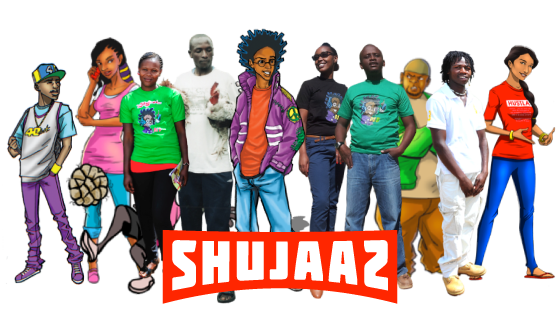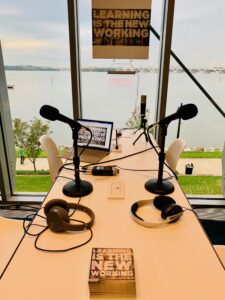Definitely something different on this week’s ‘Learning Is The New Working’ podcast. How so? Because we talk to two very impressive young men who have gone off and founded a fascinating little Learning technology platform while still in school.
In this case that school’s Boston’s Babson College, which famously encourages an entrepreneurial mindset and which seems to be the perfect foil for these two edtech pioneers. In any case, the two founders of the start-up in question, Michael Ioffe (CEO) and Ryan Laverty, of Arist, a Learning platform available since 2018, really seem to have benefited from that environment.
Arist, a text message based learning platform that helps individuals and organizations instantly improve learning and training, one text message ‘course’ at a time, and which is being used for everything from compliance training to content reinforcement. (To avoid confusion, ‘text’ here should be read as ‘SMS’ – obviously, we work with text as content all the time in Training.)
What that looks like in practice is a daily push of no more than 1,200 characters, a discipline that forces instructional designers to really get as precise and on-point as possible. In our conversation, which is also a first for us with multiple interviewees bridged from my home office in Seattle, Ryan in his dorm at Babson and Michael in Shanghai, we delve into their ‘answer’ to the problem Josh Bersin so memorably frames for us: that today’s super-busy, time-poor worker might just get 24 minutes of their time to try and help them learn new skills.
I learned a lot doing this interview, and have done an really cool Arist course on one of my passions, modern architecture (check out the portfolio yourself here). I am sure you will too. And of course, our conversation with Arist is a brilliant example of what we’re trying to do in Season 3 of LITNW: explore The Rise of the Learning Scientist.
So in this season, we’re looking at what we can learn from adjacent disciplines to help start to build a new model for Adult and Workplace Learning. And we’re doing that by talking to computer scientists and engineers, social scientists, neuro- and data-scientists, experts and practitioners who are both doing great work but also trying hard to fall in love with the problem, not the solution.
Don’t worry, we’ll still be hearing from frontline CLOs and HR thinkers on other episodes of the podcast.. but it’s time, we feel, to build a scientific basis for our practice if we are to respond to the challenges Learning is starting to face, and my hunch that Michael and Ryan are well-placed to comment on these important issues.
Thanks guys, but I would also like to thank our latest great new sponsor for helping make this possible: Mandel Communications, the global leader in communications skills training for line of business managers, sales teams, and technical or analytical professionals, and which strives to help CEOs deal with the fact that poor communication costs the average US business $52.5 million a year in lost productivity and opportunities.
I recommend you check both Arist and Mandel out… and hope as we start our new decade you can find 32 minutes of your valuable time to listen to this great joint interview! Click to subscribe directly to ‘Learning Is The New Working’ on Apple Podcasts Spotify GooglePlay SoundCloud



